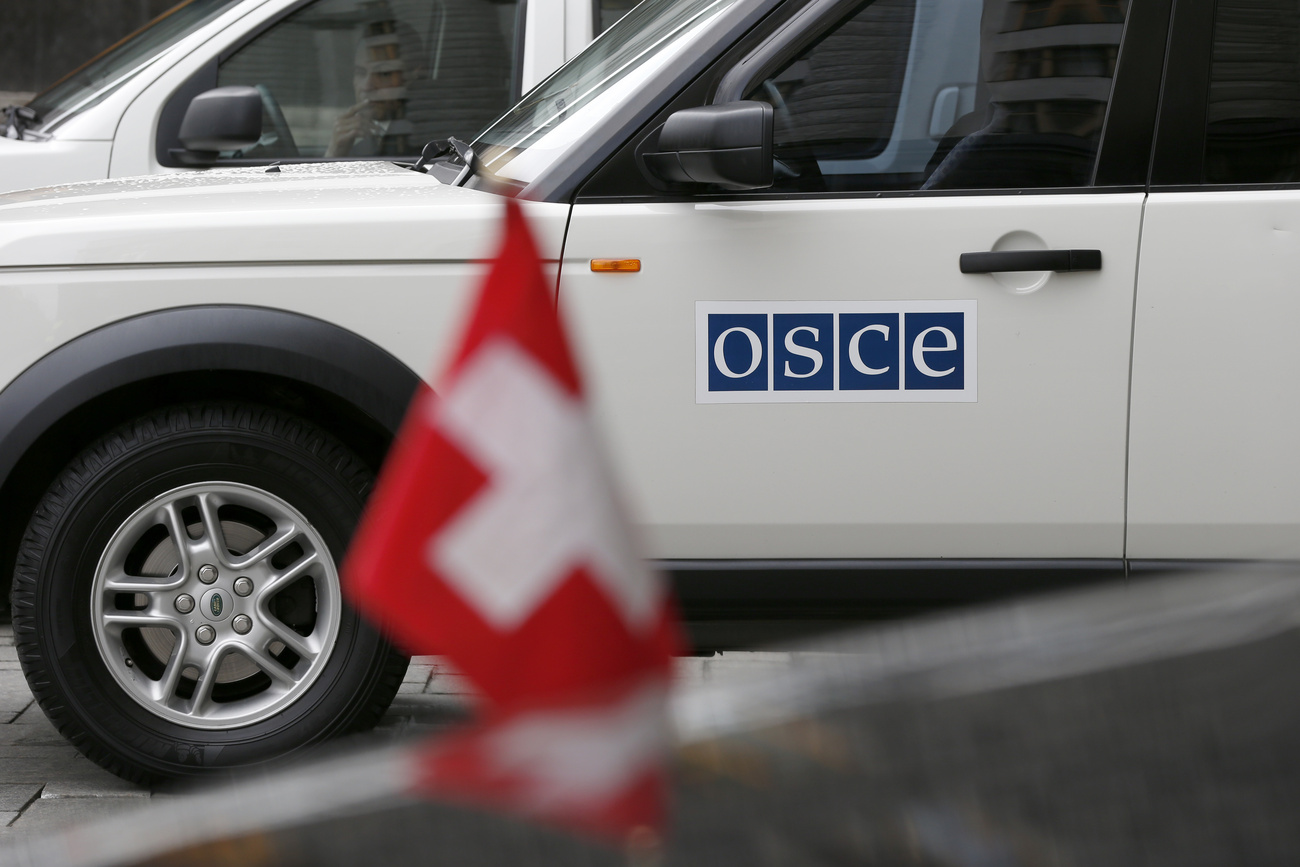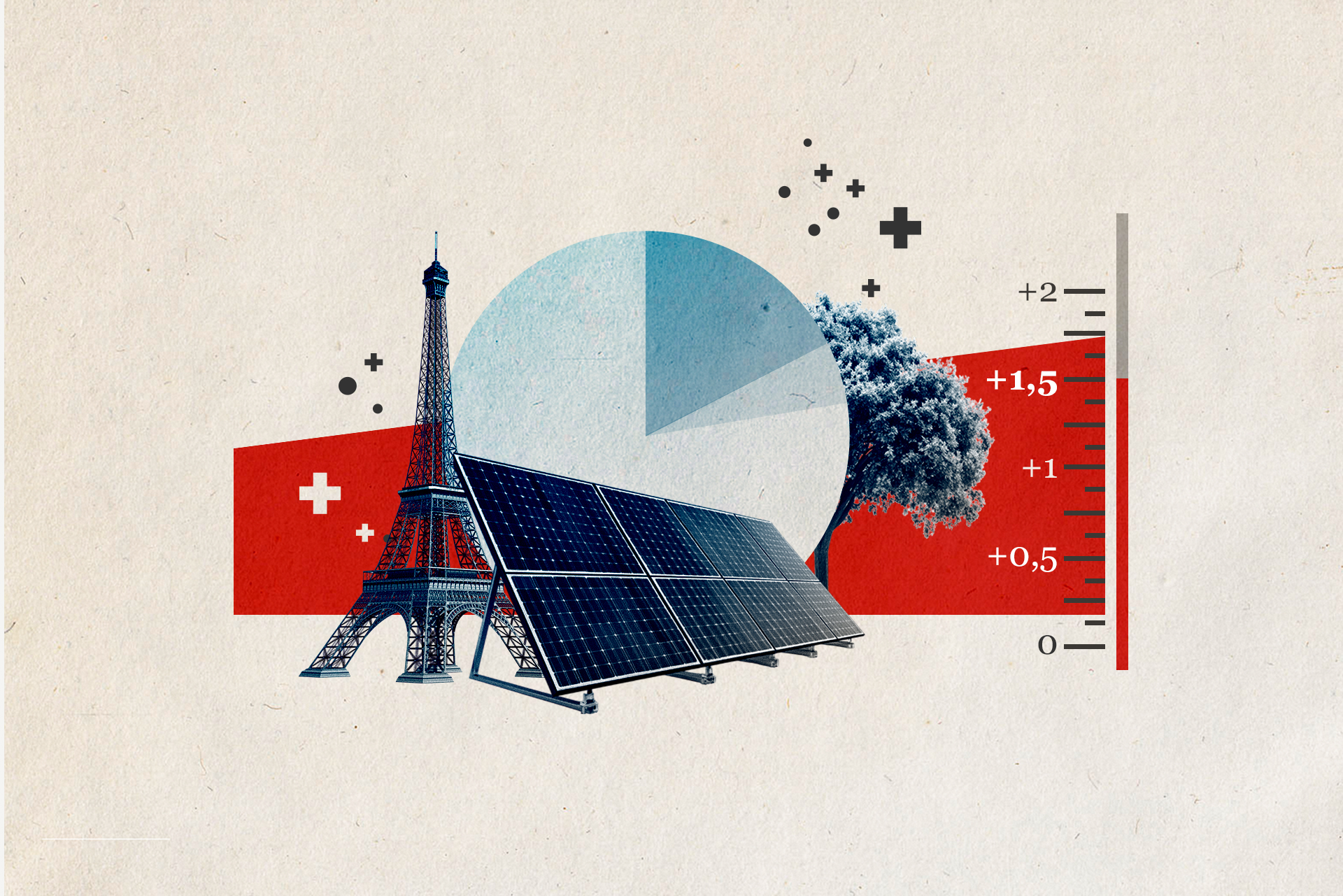
Lake Geneva’s ecosystem under threat after latest mild winter

For the thirteenth consecutive winter, the waters of Lake Geneva have failed to fully “brew”– a trend driven by global warming. Scientists warn that the flow of oxygen to deeper waters, essential for the lake’s ecosystem, is threatened.
According to data published on Wednesday by the International Commission for the Protection of the Waters of Lake Geneva (CIPEL), this year the water mixed only to a depth of 110 metres – just over a third of the lake’s total depth of 309 metres.
This marks “an all-time record”, with thirteen consecutive winters without a full brewing. The last time this happened was in 2012, says CIPEL secretary-general Nicole Gallina.
The lack of complete water mixing, or brewing, caused by the lake’s warming, has resulted in a severe oxygen deficit in its depths. “With less oxygen in the water, there is less and less viable space for living organisms,” says Viet Tran-Khac, head of the laboratory at Thonon-les-Bains – in France – at the Institut National de Recherche pour l’Agriculture et l’Environnement (Inrae), which is responsible for analysing the samples collected by CIPEL.
Ever milder winters
Typically, in winter, surface waters cool down, reaching a density comparable to that of the deeper layers, which allows for mixing. This process is essential for maintaining aquatic ecosystems, as it facilitates the transfer of oxygen throughout the lake.
Only particularly cold and windy winters enable large-scale vertical mixing of the water, ensuring a homogeneous distribution of nutrients, oxygen, and temperature from the surface to the lakebed.
However, increasingly mild winters are preventing surface waters from cooling sufficiently. This year, the minimum recorded winter surface temperatures (measured at an average depth of 0-10 metres) were 7.8°C – 1.5°C higher than the reference period of 1991–2020.
In 2012, “oxygen levels in deep waters were 7mg/l,” explains Tran-Khac. “Now, they have fallen to around 2mg/l, which is below the critical threshold of 4mg/l required by living organisms.”g/l nécessaire pour les organismes vivants.
Lateral flows: a ray of hope?
Despite the dire situation, “there is hope” for the reoxygenation of deep waters, says Nicole Gallina. Last year, a study by the Swiss Federal Institute of Technology Lausanne (EPFL) revealed that the complete mixing in 2012 also benefited from so-called lateral flows, a previously little-understood mechanism.
However, according to CIPEL, not just deep water oxygenation is at stake – the entire ecosystem of the lake is beginning to change. The lack of oxygen is affecting the growth of phytoplankton, the microalgae at the base of the food chain, which are consumed by zooplankton – which in turn serve as food for fish populations.
If this trend continues, it could have profound consequences for biodiversity in Lake Geneva.
Translated from French using DeepL/amva

In compliance with the JTI standards
More: SWI swissinfo.ch certified by the Journalism Trust Initiative





























You can find an overview of ongoing debates with our journalists here . Please join us!
If you want to start a conversation about a topic raised in this article or want to report factual errors, email us at english@swissinfo.ch.